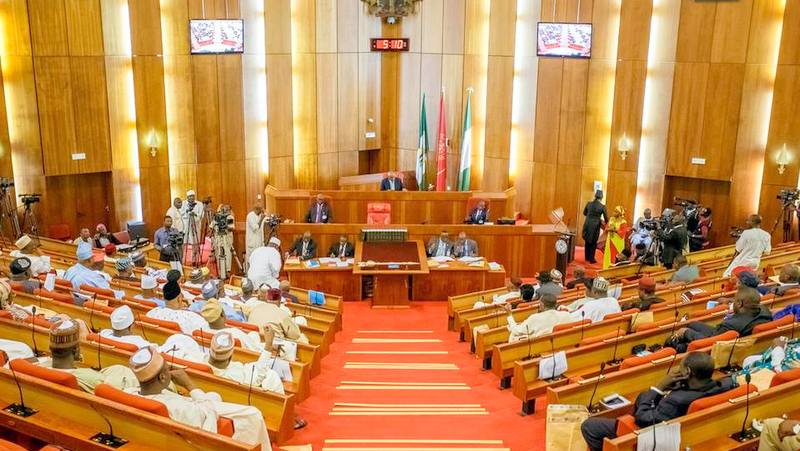
The Nigerian Senate has summoned National Security Adviser (NSA) Mallam Nuhu Ribadu, along with the heads of the Department of State Services (DSS), National Intelligence Agency (NIA), and Defense Intelligence Agency (DIA), over allegations that the United States Agency for International Development (USAID) has been financing Boko Haram.
The security chiefs are expected to provide a closed-door briefing to lawmakers, shedding light on the claims and their implications for Nigeria’s national security.
Allegation Sparks Concern
This development comes as President Bola Tinubu and Senate President Godswill Akpabio met at the Presidential Villa to deliberate on the matter. The Senate has expressed grave concerns over the alleged involvement of international agencies in funding terrorism, further exacerbating Nigeria’s security crisis.
The motion, sponsored by Senator Ali Ndume and co-sponsored by eight other senators, underscores the urgency of assessing the credibility of the allegations and formulating policy responses.
Origin of the Allegation
The controversy began when U.S. Congressman Scott Perry, during a recent hearing by the U.S. Subcommittee on Delivering on Government Efficiency, claimed that USAID had inadvertently funneled approximately $697 million annually to terrorist organizations worldwide, including Boko Haram.
Although the U.S. Congress has initiated an investigation, Nigerian lawmakers have resolved to conduct their own probe, ensuring that the country’s security interests remain safeguarded.
Senate’s Call for Investigation
During the Senate debate, Senator Ndume highlighted the long-standing concerns over Boko Haram’s funding sources, emphasizing the devastating impact of insurgency on Nigeria. He recalled previous attacks, including the 2011 bombing of the United Nations building and the Nigeria Police Headquarters in Abuja.
“The federal government has spent enormous resources over the years to combat terrorism, yet the activities of these groups persist,” Ndume stated.
Senator Kaka Shehu Lawan lamented that past intelligence efforts to trace terrorist funding had not yielded significant results. Similarly, Senator Abdul Ningi stressed that such sensitive matters should be addressed in a classified security briefing rather than an open Senate debate.
Akpabio Urges Caution
Senate President Akpabio advised lawmakers to verify facts before drawing conclusions, warning against misinformation spread via social media.
“Social media is often full of speculation and mischief. It is crucial that we hear directly from our security agencies before making any judgments,” Akpabio cautioned.
However, Senator Ndume countered, asserting that the claims were not mere online rumors but were already under investigation by the U.S. Congress.
U.S. Response and Ongoing Investigation
The U.S. Mission in Nigeria recently confirmed that it has comprehensive monitoring and evaluation systems in place to track foreign aid utilization. The agency stated via its verified social media handle that it is reviewing past allocations to ensure compliance with its intended objectives.
Meanwhile, President Tinubu’s late-night meeting with Senate President Akpabio is seen as a strategic move to address the controversy at the highest level of governance. The Nigerian government has signaled that, if proven guilty, USAID’s operations in Nigeria may face serious consequences.
What’s Next?
While no date has been set for the Senate’s closed-door session with the intelligence chiefs, the outcome of the probe could shape Nigeria’s future counterterrorism policies. With rising concerns over external funding for terrorist groups, lawmakers are under pressure to ensure a thorough investigation that prioritizes national security.
Stay tuned for updates as this story develops.
